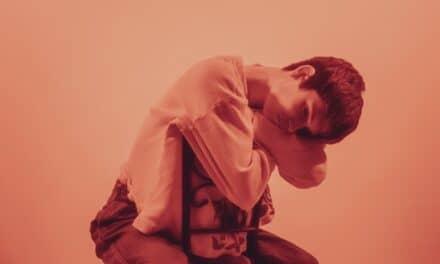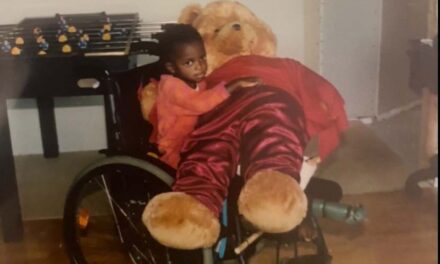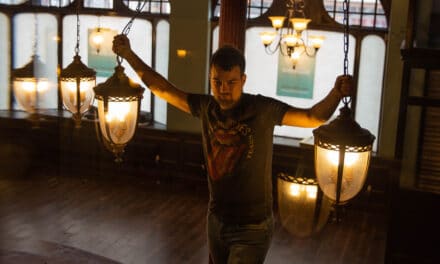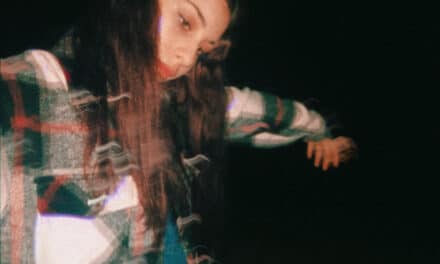The High 70s came to life in the dark Los Angeles clubs, where songwriter, Chris Williams, felt the persistent connection to the music of of late 70s era – Iggy, Bowie, Joey, Johnny, Blondie, the Cramps, Joy Division. The music of that era, glam, garage rock, punk and new wave exploded with dark energy and decadence. The High 70s sound taps into this energy and infuses it with stories, real and imagined, of the club goers and rock ’n’ rollers who inhabit this world. A theme that emerged as the songs took shape was the relentless spirit that keeps the dream alive, even when reality takes a dark turn. We try to keep it together, but sometimes the connection unravels. What are ya gonna do but turn it up and rock out? These are songs that deliver personal and shared catharsis.
pre-order the record here: https://thehigh70s.bandcamp.com/album/glitter-box
What’s your story as an artist?
My story starts with being inspired and ends with being inspiring. It’s about being moved and wanting to contribute to a movement. I remember hearing Jimi Hendrix for the first time when I was 12. I ran downstairs and dragged my brother and his friend upstairs where “Are You Experienced?” was on the turntable and said, “just listen to this!” It was at that point, I realized that I wanted to make music that moved people as I was moved. As the years went by, the nature of what moved me took various turns. I realized that the music that made me go back to the well of inspiration were well composed songs that took me to a higher place, not just with the music and the sound, but the attitude, the lyrics, the song structure, the references to past influences. That’s what I’ve always aspired to as an artist, to make music that could move people in the same way I continue to be moved by inspiring music by inspiring artists.
What do you want your music to communicate?
At a primal level, I want it to be cathartic and energizing. It’s frequently the case for me that I’m not interested in diving deeper into an artist and their music unless it moves me at a primal level first. Another important aspect is authenticity. If the emotions expressed in your music are born from your actual experience, they resonate with listeners, even if they can’t understand or relate to the actual experience. Most of the songs on this record come from specific, often painful experiences in my life. I’m grateful to hear that people who have heard the record can feel that. I hope it helps.
What are some sources of inspiration for your storytelling?
Much of the High 70s music is fueled by my experiences of going out to clubs in LA and the beautiful, out of control chaos that frequently happens on those crazy nights. “Freak House” is a true story – names are named – about what happened at Bar Sinister, a long running LA goth club where all manner of decadence rules. Other songs are about control issues in relationships, willfully descending into toxicity, self imposed isolation, trying to be an artist in an expensive city and teetering on the edge of financial ruin… cheery topics all around!
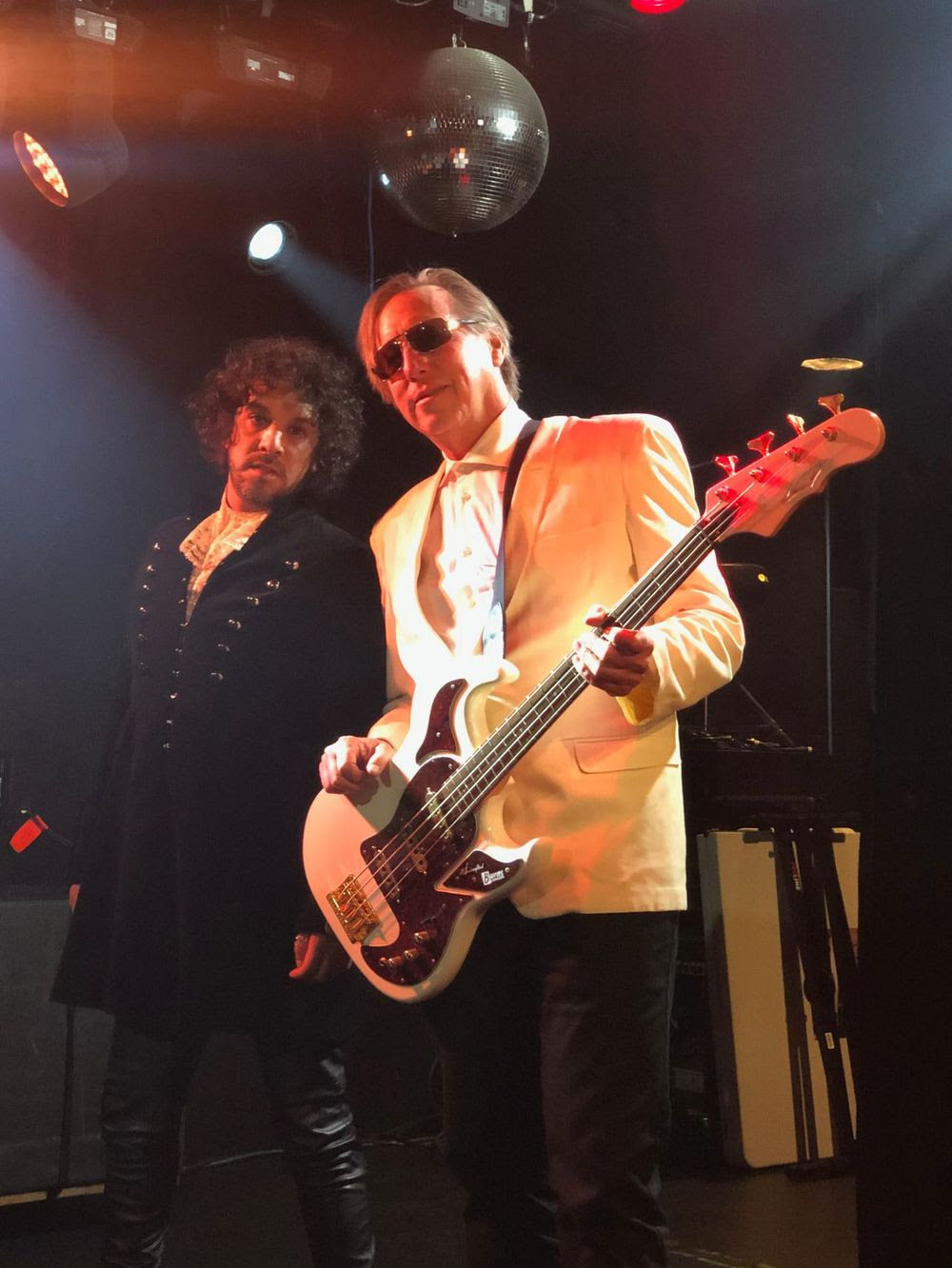
Who is an artist that you look up to more than others today?
As far as the current scene goes, I admire artists like Ty Segal, Shame, Dry Cleaning and Star Crawler who have kept the rock ‘n’ roll flame alive in this new, fresh generation. But my all-time rock ‘n’ roll hero is Iggy Pop. It’s amazing that he has continued to make rock music that rocks your body and mind, and anyone who sees him live gets it. He is both an idiot and a genius at the same time.
What’s the record or artist that made you realize you wanted to be an artist?
As mentioned, Jimi Hendrix “Are You Experienced?” was like being plugged right into the electrical socket. Of the same era, hearing Black Sabbath, “Volume 4” on headphones made me want to play loud guitar. But it was taken to a new depth when I heard Joy Division. I realized that real, painful personal experience could become music that is ironically joyful. You can hear this on our track, “We Have Nothing”.
Tell us about your latest release and how it came about
I have to give a lot of credit to our producer, Ethan Allen. I had done records with him before, but he knew that those records were, to some extent, pulled away from my musical heart by the influence of other band members. I remember him saying to me, “you need to be in a band with people who understand you.” When I met Princess Frank, I knew instantly, he gets it and can make this rock with the right attitude. But Ethan is the key because he knows how to make great sounding records. It’s recorded in studios with amazing vintage gear, which is what gives it that think 70s rock sound. But the pandemic made this take forever. There were losses. Fortunately, we had recorded all the basic tracks before the lockdown and were able to eventually push through the tragedy.
What inspires your sound?
Before the pandemic, and now again – kinda, I go out to a lot of clubs and shows. I was energized and somewhat surprised that so much of the music from that golden period where glam and garage turned to punk. Then the DIY spirit of punk meant anyone can play, which brought us the artist who gave us post-punk and New Wave like the Cure, Joy Division, Talking Heads, Blondie… I wanted to stand on the shoulders of those giants and make new fresh music that would speak to the fans that were keeping that spirit alive. I spent years saving songs that fit that mission until I met Princess Frank, the amazing musician/drummer who brings the High 70s to life.
What’s your favorite tune of yours?
That’s a tough question. I love all my children. One that recently brought a tear to my eye is “Astro Van.” I think it’s important to reach outside yourself as an artist, but also bring yourself to the party. I spent a long painful period of unemployment during the pandemic. I was able to save it, but the prospect of losing what I assumed I could keep pushed me to a point of great empathy with those who are forced to give up their homes. But still, the song is able to keep my characteristic dark humor. “She thinks my van is kinda hot. Just wait ’til the sun comes up.”
Where are some things you really want to accomplish as an artist?
I want to stand on the shoulders of giants. I want to make music that inspires as I have been inspired. I want to make music that fits on a playlist beside some of my favorite songs. And then comes the hard part: finding your audience. If you’re doing something that is inspiring, you need to make the effort to find the people who will get it and love it, take it into their hearts so that it makes their life better.
Favorite lyric you ever wrote?
Another tough question. I try to push myself to make sure the lyrics are authentic and good. The beauty of songwriting is that you can carry the lyrics around with you, listen to demos on the headphones… If you hear something that bugs you, make it better. This is not necessarily my favorite, but a pretty good expression of how I rushed headlong into the toxic relationship I just got out of.
i wanna gaze into the scanner darkly
i wanna go back to her apartment
hunt her down with a poison arrow
say goodbye to the straight and narrow
I wanna fall down stairs to the bottom
fade away into a dream narcotic
Was there ever a moment when you felt like giving up?
There was a brief period where I didn’t even want to be in a band. Then I went to a show that was not even that great, but it made me realize that playing live music is a very honest medium. It’s very evident when you see a band who brings what to the party and how committed they are to it. This made me want to get back in the game with a band that was truly firing on all cylinders. To do this, I realized that it was crucial to make sure that the creative process was open to everyone in the band. I call it my biodiversity theory. If everyone in the band is putting themselves into the music, it will be more interesting to listen to and the band will be fully committed to it.
What is the best advice you’ve ever gotten?
As mentioned, the best advice I got from Ethan Allen, our producer. “You need to be in a band with people who understand you.” This means we don’t have to talk much during rehearsals. We know what to do and rehearsals are really fun.
Where do you think the next game changer will be in the music industry and entertainment scene?
The music and entertainment scene has become so diverse that it has been more difficult for a seismic change to take place. Music festivals have certainly been the biggest game changer in the last decade or so. The main reason for this is that we are social creatures. We want to groove together. This is why Coachella sells out every year before they even announce the lineup. Live streaming shows were certainly no substitute for the real, sweaty thing. But one thing that I noticed was exciting about the Zoom shows was the ability for fans and artists to comment and interact. If there’s an effective way to integrate audience/artist communication during live shows, that could change the game.
Another amazing development is collaborations between musicians and filmmakers, like Thom Yorke’s “Anima”, which was done with the amazing Paul Thomas Anderson. It would take the music video game to a higher level if that moved closer to the realm of filmmaking. We have a vision for that with a series of High 70s videos. Our collaboration with video director, Giuseppe Asaro, has been amazing. We want all the characters to come to life. I think this is something many artists and fans also want.


